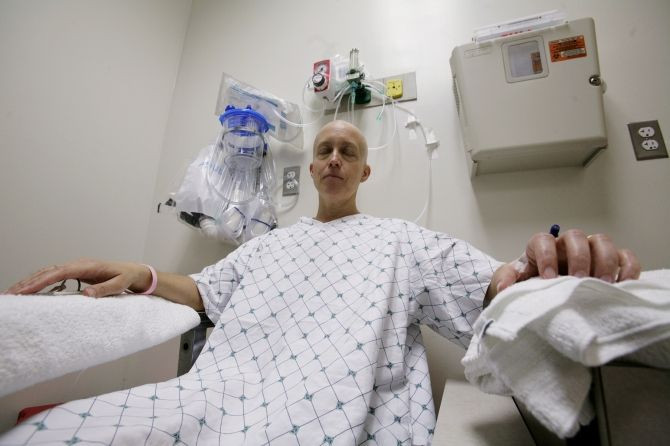Fatigue from Chemotherapy May Worsen Over Time

Women treating breast cancer with chemotherapy may experience exhaustion for a years following treatment, a new study confirms.
The study was published in the American Cancer Society’s current issue of CANCER by researchers at Moffitt Cancer Center.
"Fatigue is among the most common symptoms reported by women who are treated for breast cancer," said Paul B. Jacobsen, Ph.D., the author of the study. He is a program leader for Health Outcomes and Behavior at Moffitt.
The new study compared 205 patients who had received chemotherapy to 193 women in a control group with no history of cancer by measuring fatigue levels at six months and 42 months. Both groups lived in same zip code areas and the average age was 55.
Previous Study
The study is a follow-up to a previous study on fatigue and chemotherapy and radiotherapy for breast cancer which found that immediately following and six months after treatment, women who had received chemotherapy had greater fatigue, both in intensity and in time, than women who had received both chemotherapy and radiotherapy, radiotherapy alone, or in groups with no cancer history. The previous study was also by Moffitt researchers and was published in CANCER in 2007.
"On the basis of our 2007 study and the results of other studies, we hypothesized that fatigue in the group receiving chemotherapy would diminish over a three-year follow-up period, yet possibly remain higher than fatigue levels for women who had received radiation, combination therapy, or those with no history of cancer," explained Jacobsen, who studies the behavioral and psychosocial aspects of cancer, cancer treatment, outcomes, and cancer survivorship in a written statement.
The new findings did not show what researchers had predicted, that over time patients getting chemotherapy would experience less fatigue and eventually experience a reduction in fatigue levels corresponding to levels of women in the other groups.
"Contrary to our expectations, fatigue did not diminish over time for patients in the chemotherapy group," said Jacobsen. "In some cases, fatigue worsened, and that finding is not consistent with prior research."
A factor that probably influences long-term or worsening fatigue among patients treated with chemotherapy is the potential for weight gain. Researchers say patients seldom return to their pre-treatment weight.
Researchers found supportive care as another variable that may also affect fatigue in patients, and advise patients to be educated about interventions that are effective against fatigue after treatment, like exercise and cognitive behavioral therapy.
"This finding has important implications for patient education and for fatigue monitoring during follow-up," concluded Jacobsen. "Our results should inform patient education efforts when patients receiving chemotherapy are often told that their fatigue will gradually diminish following treatment. Health care providers may want to communicate to their patients who have received chemotherapy that their fatigue may not improve over time and may worsen."



























